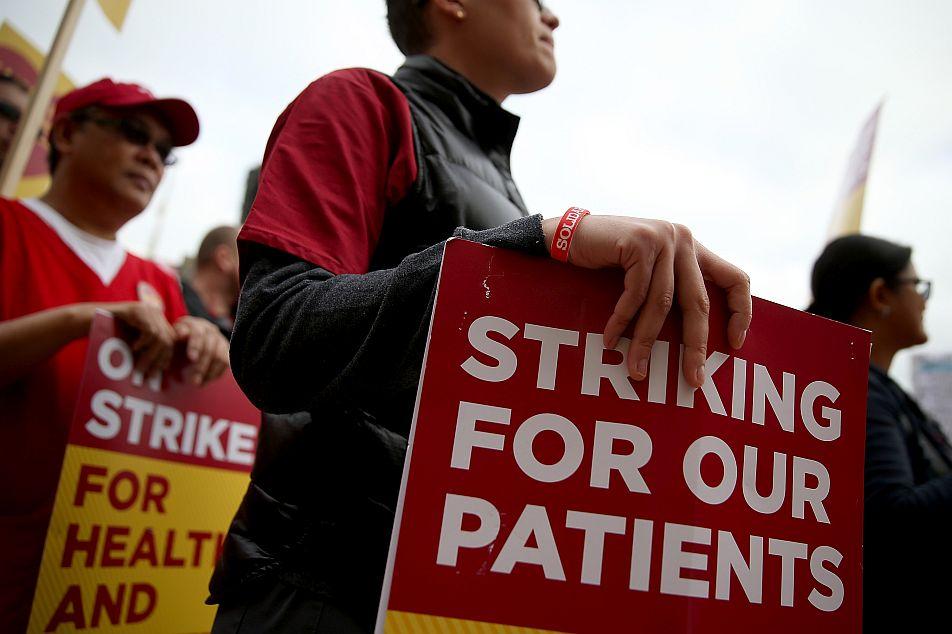The term fiscal cliff has hit the airwaves, print media, business reports, and articles. Not a minute goes by without these two words being thrown at the listener. But how many people really understand where the expression started and how it became so popular?
“Judging by media coverage, the so-called ‘fiscal cliff’ is the only thing driving the U.S. stock market these days. Unfortunately, a lot of the coverage is either alarmist, erroneous, or focused solely on the daily (or even hourly) micro-developments in the story,” a Dec. 4 article on the Motley Fool website states.
The expression “Fiscal Cliff” was invented by Ben Bernanke, Federal Reserve chairman, when answering questions during his semiannual monetary policy testimony before Congress on Feb. 29, according to the article on Motley Fool.
“Bernanke chose it [the term ‘fiscal cliff’] voluntarily to focus lawmakers on the risks associated with premature fiscal tightening, and it has become popular as shorthand for the damage that lawmakers’ inaction could wreak on the economy,” the Motley Fool article suggests.
A number of articles indicate that the term fiscal cliff is a misnomer and should actually be called “fiscal slope,” describing a slow and steady pace of legislation that is counteractive to U.S. deficit reduction.
Others suggest that the word fiscal cliff represents a catchall phrase or slight that brings to the surface the failure by legislators to agree on how to get the economy back into high gear.
The fiscal cliff, as understood by some economic experts, describes a number of changes designed as deficit reduction tools for putting the U.S. federal budget on a more sustainable path, which will begin to take effect on Jan. 1, 2013.
All in all, the term fiscal cliff signifies the expiration of a number of tax cuts, including the Bush tax cuts and the payroll tax cut, the expiration of unemployment benefits, a reduction in Medicare payments and federal funds, overall budget spending cuts, and across-the-board cuts in the defense budget.
“The so-called ‘fiscal cliff’ refers to the expiration of the Bush tax cuts (primarily benefiting the 0.1 percent) and mandatory spending cuts half from defense/security and half from social programs,” according to a Nov. 14 article on the Huffington Post website.
According to the November 2012 report, “Choices for Deficit Reduction,” by the Congressional Budget Office, the deficit reduction is a cautionary tool, as the “federal debt cannot grow faster than the nation’s output indefinitely, and prolonged increases in debt relative to GDP can cause significant long-term damage to both the government’s finances and the broader economy.”
Public’s View of the Fiscal Cliff Impact
“While debate over the fiscal cliff is the dominant issue in Washington, many Americans say they do not fully understand the consequences of the tax and spending measures taking effect,” a Dec. 11 report on the Pew Research website suggests.
A survey conducted by the Pew Research Center suggests that close to 50 percent, or four out of ten survey respondents are having a difficult time understanding the fiscal cliff deficit reduction programs, and 23 percent can’t grasp the ramification of the programs.
More survey respondents believe that the spending cuts that begin to take effect in January would affect the U.S. economy more than their personal finances.
“Nearly identical majorities say the effect of the changes would be mostly negative for the economy (62%) and their personal financial situation (60%),” according to the Pew Research Report.
Fiscal Cliff’s Affect on the Dollar
“Lloyd Blankfein [CEO at Goldman Sachs Group Inc.] suggested that a failure to resolve the upcoming fiscal cliff could threaten the dollar’s status as the leading global reserve currency,” according to a Nov. 30 article on the Motley Fool website.
The article continued to say that America’s pessimists agree with Blankfein’s remark and “argue that the dollar’s days as the leading reserve currency are numbered.”
But not all agree with America’s cynics, given that the U.S. financial markets are not experiencing a liquidity crisis and are supreme in the world.
Furthermore, there is no currency in the world that could effectively replace the U.S. dollar, given the European debt crisis.
“Perhaps, most crucially, if the dollar were to be dethroned, what would replace it?” the Motley fool article asks.
Some claim that the Chinese yuan could replace the U.S. dollar in the future. Others suggest that this is not an option, given that China is not an open society, the Chinese yuan is not freely convertible, financial markets must be free of any government control, and the Chinese regime dominates all aspects of the Chinese financial markets.
“The Chinese currency is on track to become more important globally, but is unlikely to challenge the dollar anytime soon,” according to a March article on the International Monetary Fund website.
Fiscal Cliff as Corporate Enemy
“Some members of Congress warn that defense contracting firms will lay off employees if sequestration [referring to deficit reduction actions by Congress] goes into effect [on Jan 1, 2013],” a July report published by the Senate Appropriations Committee suggests.
Reduction in funds for high-priced projects footed by the Pentagon would impact defense contractors, such as the Boeing Co., Northrop-Grumman Corp., General Dynamics Corp., and Lockheed Martin Corp., resulting in mass layoffs beginning in the coming year, sending “shockwaves through the entire industry,” according to a Dec. 6 article on the Motley Fool website.
The Motley article goes on to say that not only defense jobs are on the line, but also jobs in the fields of public services, education, and health services.
“Businesses—and business leaders—are also getting nervous. Many companies are selling divisions and businesses to avoid potential tax liabilities set to hit in 2013,” the Motley article states.
A Dec. 12 Seeking Alpha website article predicts that the fiscal cliff deficit reductions to begin on Jan. 1, 2013, would have a detrimental effect on corporations’ profit, given that they would have to pay higher taxes on their earnings and receive less subsidies, if any.
“Unless avoided, the fiscal cliff would result in sudden government budget rebalancing via massive deficit reduction. If this scenario unfolds, a crash of the corporate profits would be inevitable since the government deficit has the highest weight and one cannot expect immediate substantial increase in private investments to compensate for the lost source of profits,” the Seeking Alpha article warns.
Corporate Officials Not Worried About Fiscal Cliff
“Nearly 70 percent of chief financial officers of US companies believe the US economy will either improve or remain stable during the next six months,” according to a corporate financial officer (CFO) survey conducted by Grant Thornton LLP in November and published on Dec. 12.
The CFO’s surveyed believe that companies have faced much uncertainty since the onset of the financial meltdown and have learned to cope and survive.
Layoffs are not predicted, but just the opposite, with companies hiring more employees. Salaries will not decrease, but an increase maybe in the offing. Additionally, bonuses and other benefits will not fall prey despite the fiscal cliff deficit reduction program.
But companies are not on the verge of going on a spending binge. “While many companies don’t foresee the economy taking a turn for the worse in the next six months, there is still an absence of improving economic conditions that are needed to propel our country into growth mode,” according to Grant Thornton CEO Stephen Chipman.
The Epoch Times publishes in 35 countries and in 20 languages. Subscribe to our e-newsletter.



